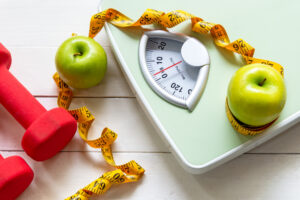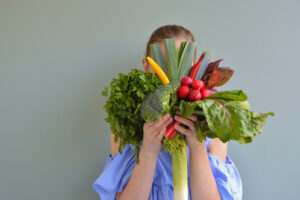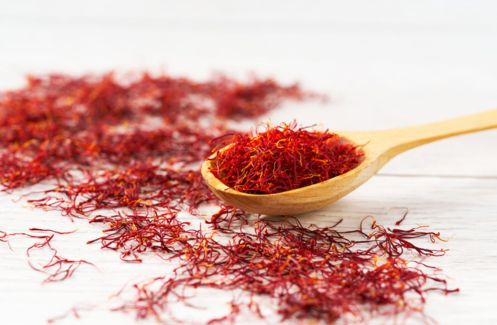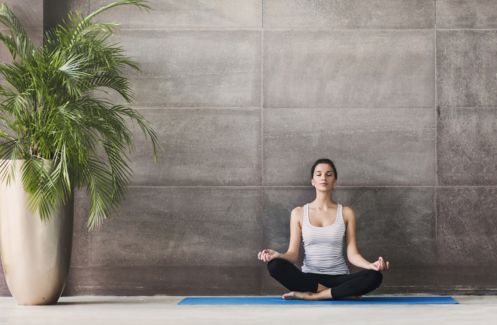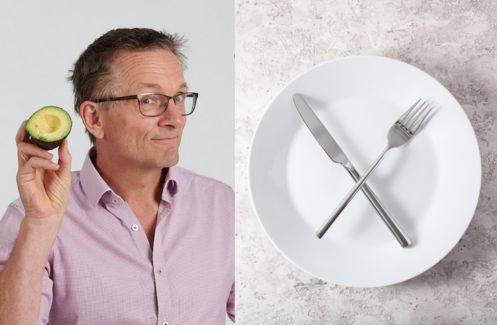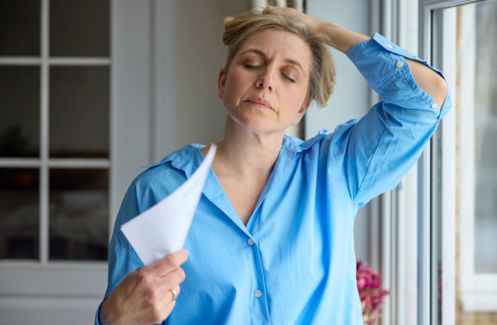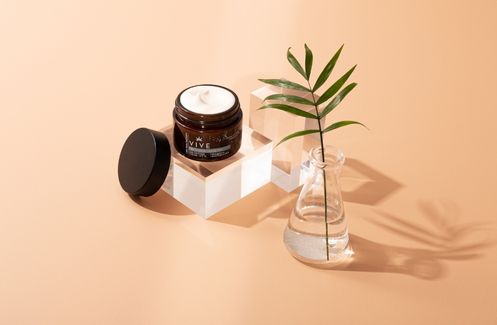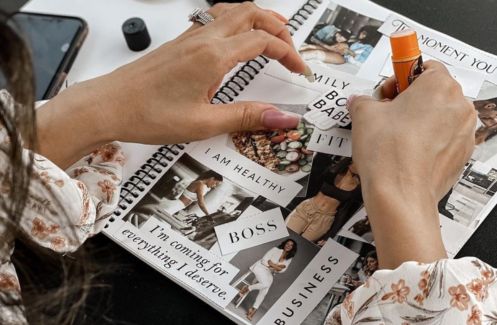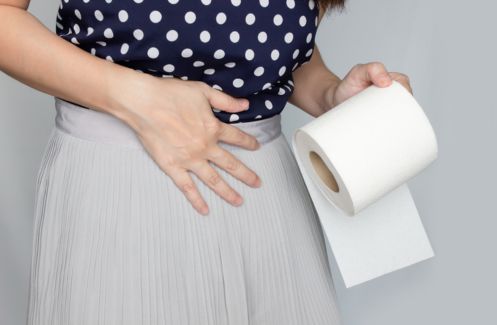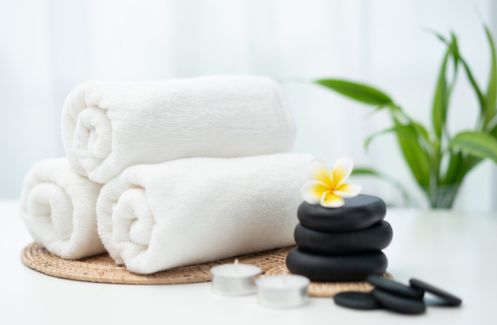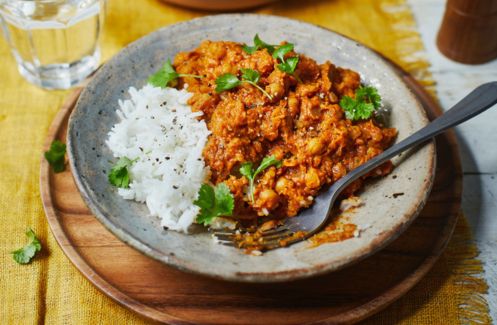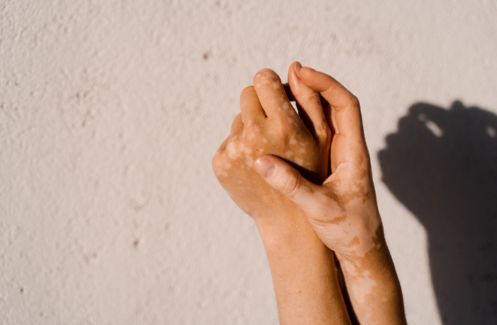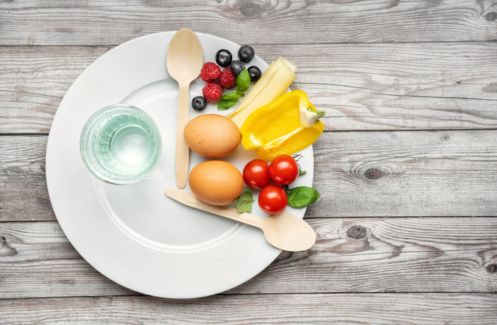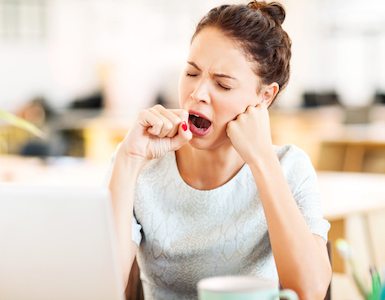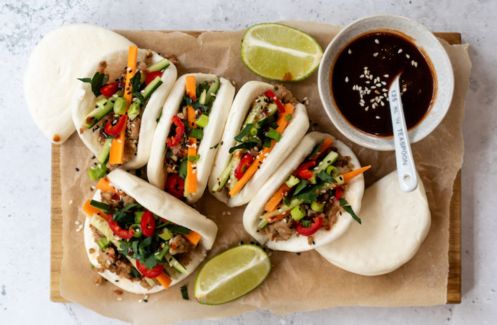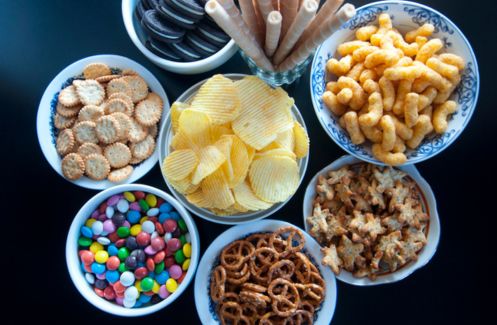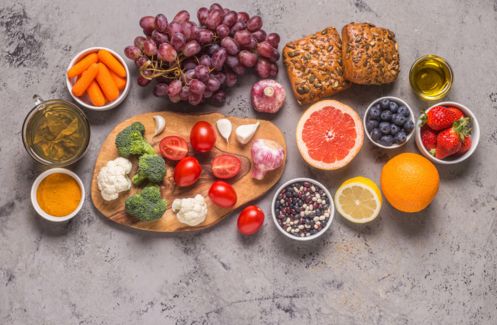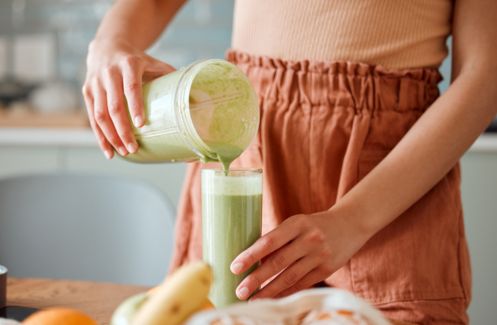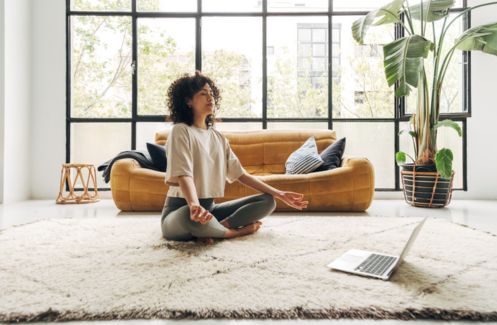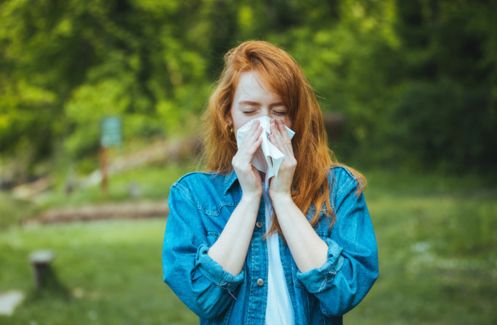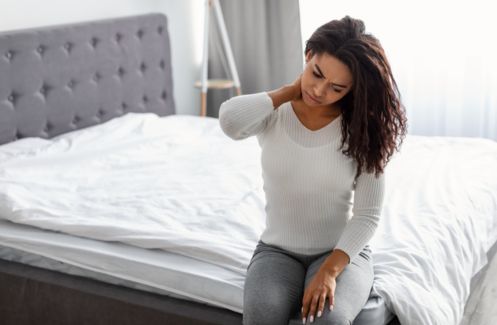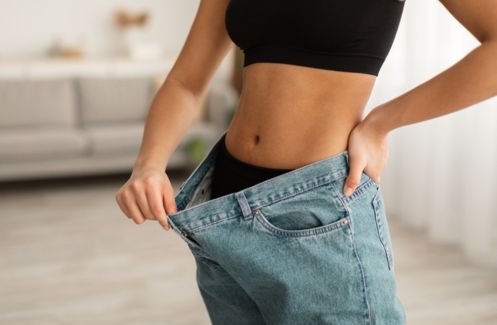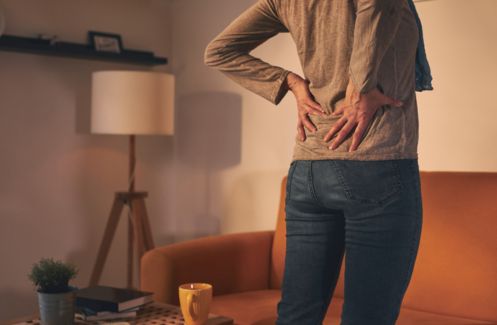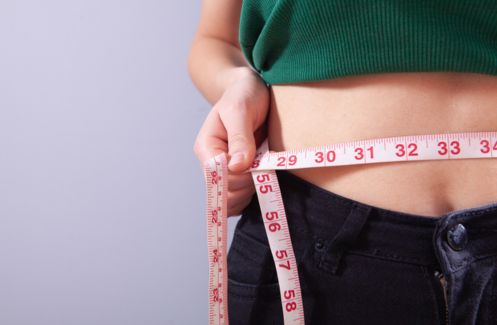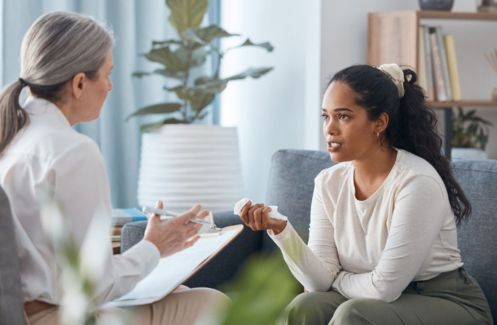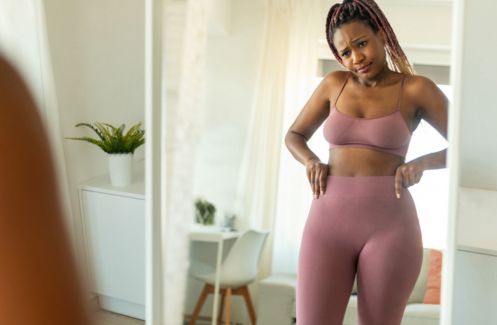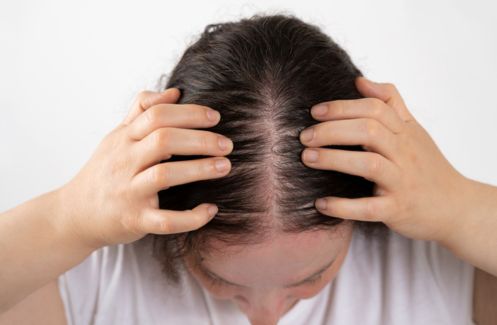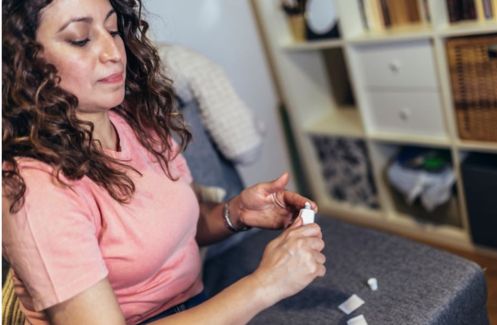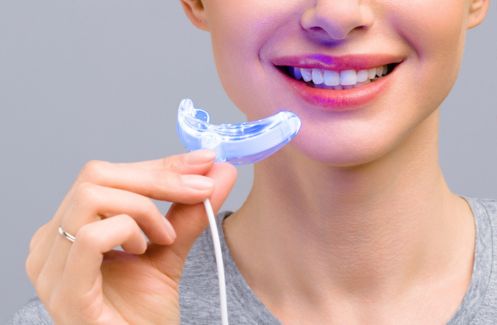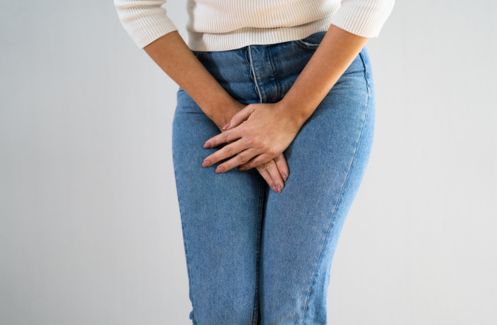Healthista asked registered nutritionist and founder of Honestly Nutrition, Gabi Zaromskyte, to explain why we bloat and how to prevent the effects of bloating
We all know what it feels like to be bloated – it’s that ‘can’t get zip your jeans zipped, ate too much food’ feeling.
Bloating is the the feeling of fullness, tightness, or swelling in the abdomen caused by an accumulation of gas or water retention in the digestive system.
Bloating is a common symptom that many experience after eating too much and can even be caused by menstrual cycles.
Bloating can also be linked to intolerances, coeliac disease, and irritable bowel syndrome
However, it’s not always the foods we consume or our hormones that are the source of feeling bloated. Bloating can also be linked to intolerances, coeliac disease, and irritable bowel syndrome.
Besides loading up on supplements, what can we do to prevent this from happening?
Here are 6 way to stop bloating according to Nutritionist Gabi…
Tip #1 Stop dieting
Not eating enough, or dieting, leads to a decreased speed at which food moves down the GI tract, contributing to less frequent bowel movements. This can result in constipation, which can cause bloating.
Instead of basing your eating habits on set macros and calories, try eating more intuitively.
READ MORE: 10 reasons why stress makes it harder to lose weight
Tip #2 Don’t restrict food groups
Restricting food groups or not eating a wide range of plant foods in general leads to a reduced gut microbiome diversity. Dietary diversity is extremely important for overall health.
This is particularly relevant when following a low-carb diet, as carbohydrates contain fibre, which works wonders for the gut.
In terms of GI symptoms, reduced fibre intake leads to a smaller gut microbiome diversity. This means that you may not have the necessary metabolites to help digest certain foods, hence the constant bloating.
Eat the rainbow – aim for your plate to be rich in bright colours
Widen your dietary variety by including at least 30 different plant foods a week, including vegetables and fruit, whole grains, nuts and seeds, herbs and spices, as well as different combinations of herbal tea.
Eat the rainbow – aim for your plate to be rich in bright colours.
A common mistake is getting frightened by the bloat once more foods are being reintroduced and going back to a restrictive diet, concluding that you are intolerant or sensitive to those foods.
What you need to do instead is reintroduce foods in small amounts, so the gut can repopulate with the necessary bacteria needed to aid digestion.
Think of it as a baby’s gut learning to accept and get used to new foods. It takes time, so be patient. The bloating, cramps and general discomfort will go away eventually.
READ MORE: Spot the signs & symptoms of IBS – plus why women are more likely to suffer than men
Tip #3 Intentional Detoxing is unnecessary
Detox happens naturally by the body and if the body is healthy and the organs responsible for the detoxification processes are healthy, the body doesn’t need any help detoxing.
However, if you’re in detox mode trying to get as many greens and vegetables as possible, you may be increasing your fibre intake too quickly.
increase your fibre intake gradually and drink more water
This also applies to a general change in diet when more fibre is being introduced.
To avoid bloating, increase your fibre intake gradually and drink more water as you’re eating more fibrous foods to avoid constipation.
READ MORE: 7 physical signs of stress you shouldn’t ignore – plus what can help
Tip #4 Avoid Diet or Low-Calorie Foods
Low-calorie and sugar-free foods contain sweeteners, which can be the culprit of your bloat.
Have a look at the ingredient labels and look out for sweeteners, particularly ending in -ol.
Also limit fizzy drinks, fruit juices and smoothies and avoid gulping down your liquids fast or drinking through a straw, as this may lead to swallowing air and in turn, bloating.
Tip #5 Pay attention to what your eating while you eat it
Eating while scrolling and walking at the same time, eating and driving, or watching TV are all signs that there is a lack of mindfulness in your eating habits, which may also mean you are probably eating faster than you realise, which can result in bloating.
Chew well and avoid eating on the go
Eat slowly – set a timer for at least ten minutes. Avoid screens and other distractions and do your best to be mindful when eating. If this is new to you, it can be hard at first.
Chew well and avoid eating on the go. You need to rest to digest and not be in flight mode and this is why staying rested after a meal to allow relaxation for good digestion can be helpful.
READ MORE: 12 weight loss tips this nutritionist has heard that ACTUALLY work
Tip #6 Get to the bottom of your unmanaged stress
Stress is known to be the culprit of multiple GI symptoms and even a factor in gastrointestinal disorders.
Starting a mindfulness practice might be a good idea if you don’t already have one to help manage your stress. Start with a daily meditation and 3 things you’re grateful for if you’re new to this.
Pilates or yoga can help to maintain the parasympathetic nervous system
Exercise is another great way to release negative energy and load with uplifting endorphins. Also, light movement like walking, Pilates or yoga can help to maintain the parasympathetic nervous system activated, which is responsible for rest and digest. Twisting yoga poses can also help reduce bloating and gas.
Final Note…
It’s important to note that bloating is a normal part of the digestive process.
The digestive system naturally produces and releases gas as a result of breaking down food and fermenting certain substances in the gut.
However, excessive or chronic bloating may indicate an underlying issue that requires medical attention.
HEALTHISTA’S ANSWER TO MENOPAUSE; MENOSTART: PRESS PLAY, NOT PAUSE.
The Healthista Menopause Pack is a fully comprehensive online video workshop, led by Dr Dawn Harper; affordable, accessible and covering all aspects of the menopause, for those who need it most.
With expert advice and information from seven credible menopause industry experts, we hope that this online resource will help women navigate common health and wellness changes and challenges they may experience before, after and during the menopause.
Like this article? Sign up to our newsletter to get more articles like this delivered straight to your inbox.




